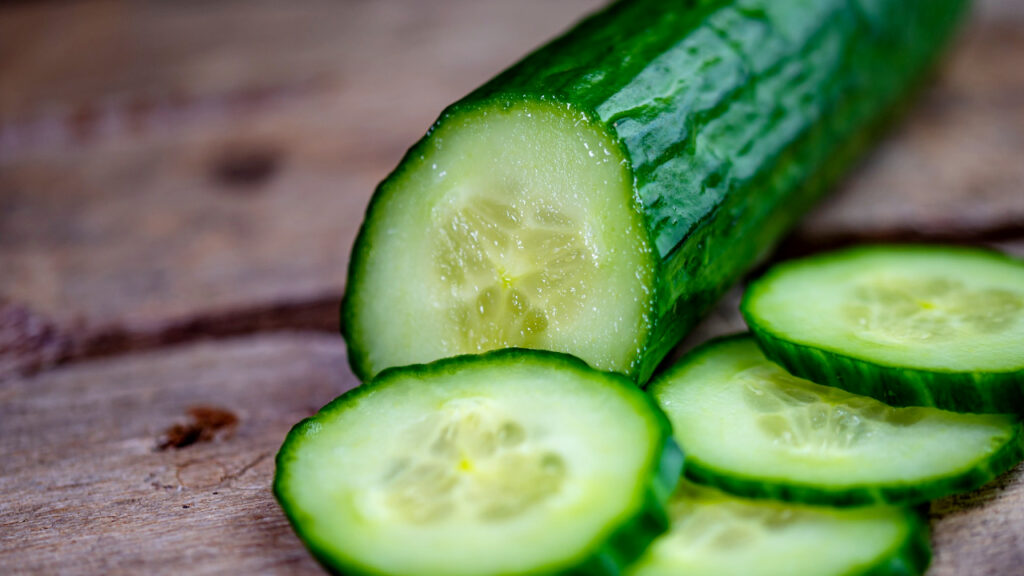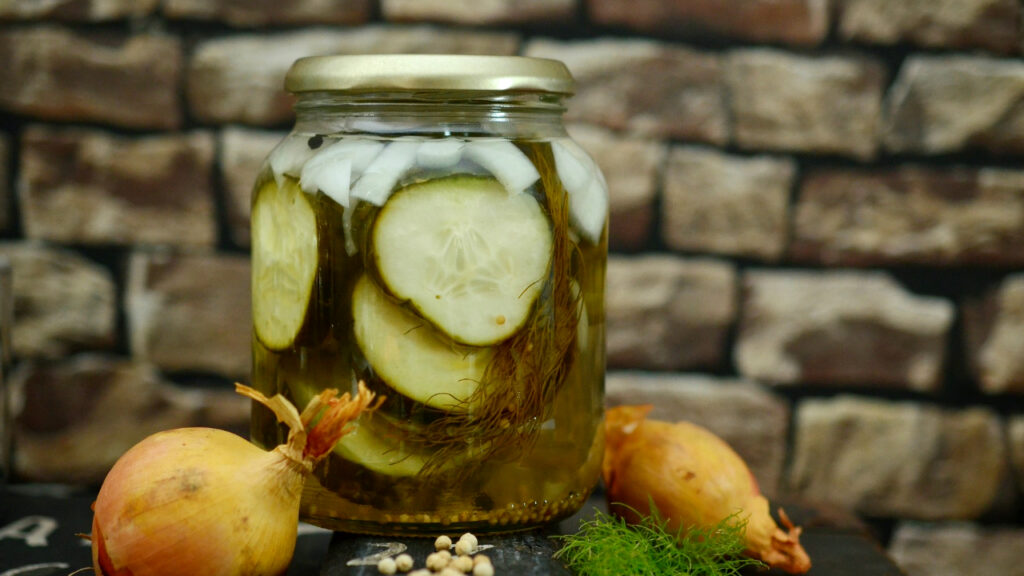Yes, gerbils can have cucumber in moderation. They are small rodents that eat various fruits and vegetables, including cucumber. However, cucumber is high in water which is not suitable and can lead to diarrhea or loose stool.
Gerbils are dry regional species, and their diet usually contains low-watery food such as grains, seeds, nuts, and fruit or veggies grown in that area.

While a small bite of cucumber occasionally is fine, but not too often.
Read to know more.
Table of Contents
What Do Gerbils Typically Eat?
- High-quality gerbil mix, seeds, and pellets should be a staple part of their diet.
- Gerbils can have 10% of their total diet as fruits or vegetables; they have a high nutritional value which helps them balance their diet.
- While gerbils do not drink much water, they should have access to fresh water 24/7 in their cage, preferably by a pet bottle.
- You can also sparingly give mealworms, crickets, and other insects a few times a week. They are a good source of protein.
A gerbil’s tooth grows continuously, so it’s important to give them something to chew, so it naturally wears down their teeth, like crunchy vegetables, fruit, or toys.
Can Gerbils Eat Cucumber?
Yes, gerbils can have cucumber in small quantities. They are a great source of vitamins k, c, and magnesium with decent fiber. But the best part of cucumbers is the water content; they are 96% water.
Despite these nutrients, gerbils shouldn’t eat too much cucumber because of its high water content. Basically, gerbils do not need high water in their diet. So, too much water in their body can negatively impact their health. For example, it can easily mess up their digestive system and lead to diarrhea.
However, a bite or two won’t likely harm your pet.
Thus, offering cucumber a few times a week can help them keep hydrated but not overdo it. Cucumber is a healthy and safe option.
Do Gerbils Like Cucumber?
It’s arguable!
Some say their gerbils enjoy eating cucumber, while others don’t. If we look into the natural eating habit of gerbils, I have already stated that gerbils are from a dry region. They have almost no access to water-dense vegetables or fruits like cucumber.
This means they eat a dry-based diet that grows around the deserted area. In fact, they do not need high water in their diet.
However, modern-day gerbils can have different preferences. Since most gerbils are domesticated, their liking and disliking could be changed due to the environment.
The best way to find it out is to offer them a bite of cucumber and absorb it. However, they have better choices than cucumbers due to their high-water density. It can lead to several health problems if consumed in high quantities.
Are Cucumber Healthy For Gerbils?
There is no particular health benefit of cucumber except some vitamins and minerals. Gerbils are originally from deserted region animal usually found in dry sandy plains and grassland areas of the Middle East, Africa, or Asia.

They get most of their water through their food and don’t really need high water in their diet, but in captivity, they may drink water.
Cucumber, on the other hand, is a highly water-dense vegetable that can be harmful to gerbils; however, in small amounts, it also has some notable benefits.
According to WebMD, one cup of cucumber contains:
- Calories: 20
- Carbs: 4g
- Protein: 2g
- Fiber: 1.5g
- Water: 96%
Along with this, cucumber contains numerous vitamins and minerals such as vitamins K, C, magnesium, and potassium.
Cucumber has a high water content which can be beneficial to keep your gerbil calm and hydrated on hot days. Also, the crunchy texture will help wear down their constantly growing teeth to a maintained level.
Can Cucumber Be Bad For Gerbils?
Yes, it can be!
Cucumber is high in water (96%) which can be problematic. Initially, gerbils are from the Middle East, Asia, and Africa; these are mostly dry areas, which is why they are also known as deserted rats. So, by nature, gerbils eat dry-based food.
Feeding a highly watery food such as cucumber can harm your gerbils. It will most likely mess with the digestive system, leading to diarrhea, gas, bloating, or loose stool.
Another thing is frequent diarrhea, or loose stool can be dangerous as it leads to severe dehydration.
How Many Cucumbers Can Gerbils Have?
1 tablespoon or the equivalent of cucumber should be offered to your gerbils.
The thump rule is gerbils shouldn’t have more than 10%-15% of their diet as treats. But cucumber is a highly water-rich vegetable that is not suitable for gerbils. It can cause several health problems, like diarrhea, if they eat too much of it.
However, small bites can help your gerbils stay hydrated for longer. Cucumbers are best served as treats, along with their regular high-quality gerbil mix.
Thus, gerbils can have cucumber now and then, but limiting the serving is important. It can help your pet in various ways.
How Often Can Gerbils Have Cucumber?
Due to high water content, cucumber is not suitable in high quantities. Approximately 1-2 times a week should be fine.
Originally, gerbils are from dry regions where they do not get the opportunity to eat high-water vegetables or fruit, e.g., cucumber. Because of this, their body has adapted to live with a low water supply. Excess water can mess up their digestive system leading to upset stomach, gas, diarrhea, or loose stool.
Moreover, excess diarrhea can cause dehydration which is dangerous for gerbils.
Thus, offer cucumber to your gerbils in moderation, like once or twice. They should eat gerbil mixes, seeds, and pellets regularly. Fruits and vegetables should only be given sparingly.
You may adjust the frequency depending on the bite size; overall, the quantity should be at most one-third of cucumber a week.
Is Cucumber Skin Safe For Gerbils?
Yes, cucumber skin or peeling is safe for gerbils. In fact, it’s the most nutrient-dense part as they are rich in fiber, magnesium, potassium, and other essential nutrients. Most importantly, silica helps keep muscles and bones healthy.
However, since cucumber is grown in an open area, you must wash it thoroughly to remove any harmful pesticides used while farming. Or simply avoid feeding it to prevent any poisonous effect on your pet.
Can Gerbils Have Cucumber Pickle?
In short, no!
Gerbils should not eat cucumber pickles. They are unsafe for gerbils as they contain a high amount of salt, oil, spices, and preservatives, which is dangerous for pets.

While it’s the most consumed form of a cucumber, you should strictly avoid feeding it to your gerbils. They have a sensitive digestive tract, and feeding anything like this can upset their stomach, causing diarrhea, bloating, loose stool, etc.
Moreover, the spices aren’t good either. It can cause severe health problems, including life-threatening conditions.
Therefore, by no means you let your gerbils eat pickled cucumber. Keep it to yourself, and do not share it with your pets.
Healthy Alternatives To Cucumber
While cucumber is not poisonous for gerbils, it’s not the best choice due to its high water content. However, there are many safe and healthy alternatives available. For example, gerbils can have carrots, bell pepper, broccoli, apple, etc.
Also, do not opt for canned vegetables; they often are high in salt, sugar and preserved with added chemicals that are dangerous for pets.
Some healthy options for gerbils are:
- Apples (seedless)
- Bell peppers
- Carrots
- Berries
- Green beans
- Mealworms and other insects
- Romaine lettuce
While these are safe, keep in mind that fruits or vegetables should only be given a few times as a snack a few times a week. More often can lead to harmful consequences like gastric, diarrhea, and loose stool. So be careful!
Final Thoughts
To summarize, gerbils can have cucumbers, but it’s best to avoid them due to their high water content. It’s better to stick with their regular diet of high-quality gerbil mix, pellets, and other low-watery fruits and vegetables that gerbils can digest.
While a few round pieces of cucumbers won’t likely harm your pet, feeding it too often can result in bloating, diarrhea, or loose stool.
However, there are healthier snack options available for your pet. If you are unsure about a particular food item, consult your vet.
Other Useful Articles:
